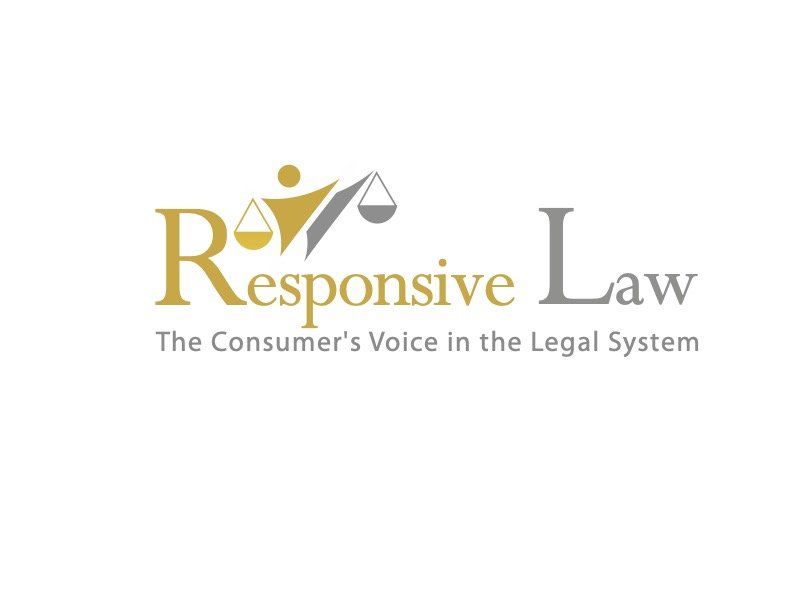Are law firm websites a window into their strategy?
Crispin Passmore • March 30, 2020
The language of lawyers and customers differs - and that matters

Locked up at home I have spent even more time than usual poking around legal websites. When I look at traditional law firm sites two things strike me. Usually, under a heading of ‘services’, there is a drop-down menu that lists areas of law that the firm’s lawyers work in. Second, is that it is easy to search for individual lawyers that specialise in those areas of law.
The research tells us that clients do not really conceive of problems in this way. It doesn’t really matter if we talk about individual consumers, small businesses or large corporates, consumers of legal services deal with problems, risks, issues. Many might be able to convert these into areas of practice – and in the most common areas of work that obviously works ok. But it only works OK – it isn’t great, and it certainly doesn’t reach into problems that the consumer does not conceive of as a legal problem.
One of the things I have learned over the last 25 years is that ordinary people, often clever, educated and well informed, don’t really know much about legal processes that they might use once or twice in their life. Many people don’t know what ‘conveyance’ means or what exchanging contracts or completion on a house purchase means, let alone subsequent registration with the Land Registry. They don’t understand what it means when their solicitor is also acting for a lender. Similarly, most people don’t really understand the single ground for divorce, ways to evidence that or the difference between decrees nisi and absolute. Really, why should they? And on even more unusual issues that ordinary people face such as work-place disputes or debt issues that often hit less educated or experienced people harder it is even more difficult to navigate. But that is how law firms present their services to potential clients: lawyer’s expertise rather than clients’ issues.
I think it is the same for business customers. They don’t know if they want a consumer law expert, a data protection lawyer or a European lawyer when they try to update their terms and conditions. They don’t want to have to think about the right mix of different experts – rather they just want their terms and conditions updated and lawful for the markets they operate in. But the websites of commercial law firms mainly replicate what we see for individual consumers: lists of practice areas and searchable lawyer lists. There are often great insights and blogs on corporate law websites – but in my view they speak to other lawyers rather than CEOs and FDs.
Is it any surprise that individuals ask their friends and families where to get a lawyer? They cannot work it out from the identikit law firm websites that all ‘put the client first’. We know that small businesses use their accountant to help them navigate the legal market. And the C-suite of global businesses use their GC not just to give advice but to navigate their engagement with corporate law firms on basic services. It is quite instructive that law firms’ offer to potential customers must be mediated like this: why don’t law firms just speak their customers language?
It is tempting to posit the theory that these law firms don’t really want to understand their customers. They prefer to tell the world, or at least other lawyers, about their expertise. I describe this as a ‘supply led’ approach to the market – the engagement between the provider and consumer is controlled and defined on the terms of the provider.
If these firms really had to fight for customers in a truly competitive market, or they just wanted to really resonate with their potential customers, what might they do differently?
We can look at some of the newer entrants to the legal market to see just that in action. Rocket Lawyer
and Legal Zoom
both function in the consumer and small business markets. Their websites talk about ‘starting a business’, ‘make terms and conditions’, ‘make a will’. Amicable
offers to ‘make your agreements legally binding, sort out your finances and if you have children, create a future where they can thrive’. Farewill
lets you ‘write my will’, ‘apply for probate’ and ‘arrange a cremation’ – simple, deconstructed, task orientated and transparently priced. These all use the customer’s language and split the work down into simple jobs or tasks. They resonate with the potential customer because they can see their problem reflected on the firm’s website.
These are technology driven and online services so what about more traditional delivery structures of businesses? The Legal Director
tells us it works on ‘business growth’, ‘business exit planning’, ‘your people’, and ‘your business relationships’. Hybrid Legal
focuses on business sectors and their specific issues – creatives, authors, start-ups, and on wider issues like GDPR or business contracts – again using language that reflects the customers issues. Brighton Legal
lists the specific tasks it can help with from ‘shareholder agreements’ and ‘agency agreements’ through to ‘company formations and administration’. No need to work out what sort of lawyer you need here – just tell the business the task you want completed.
At a corporate level the pattern is identical. Law company Elevate
offers ‘Libor transition support’, ‘contract management’ and ‘legal invoice review’. Axiom
offers solutions in ‘contract negotiations’ and ‘data privacy’. KPMG
tell us that their services include ‘global business management’ and ‘financial services regulation’. United Lex
increasingly positions itself as a technology company for the legal market.
I describe the approach of these firms as ‘demand led’ – their services are presented to the market using language that might resonate with customers rather than lawyers. When I talk to some law firms, I hear that they are not doing the same work so why would their websites be the same? I am told that traditional law firms are selling elite expertise in specialist market segments and that is a good market position because it is high margin and less prone to disruption – it is after all a personal service even at the corporate end. They are even happy to concede the work that new entrants are doing – they can’t make it as profitable and these sorts of price conscious customers are often too demanding. Sometimes I am even told they know that their strategy is right because their customers tell them they value the personal service, the depth or expertise and the availability of their adviser at unreasonable hours.
The recently (and sadly) deceased Clay Christensen of Harvard
taught us all about disruptive innovation – or how small business compete against and disrupt major incumbents. He made the point that incumbents keep improving the services that they offer customers whereas disruption comes from working out the jobs that customers want done and finding simple ways of doing those tasks. Doesn’t this look a lot like what I describe above? Law firms’ and companies’ websites are a window into their strategy and they tell us that some disruption is happening.
Christensen also predicts that new entrant disruptors will move up the value chain. There is evidence of this too. Elevate works with Elevate Next
in the US and owns Halebury
here in the UK. LOD
has launched LOD legal. Legal Zoom offers regulated lawyer services through its own brand
and through Beaumont Legal, while Rocket Lawyer offers super easy access to regulated solicitors through Rocket Lawyer on Call
and is even training new solicitors. There are more changes coming where previously unregulated firms push into new areas of work previously offered exclusively by traditional law firms. With approaching ten years of ABS behind us, more recent regulatory changes are leading to what were unregulated, non-lawyer businesses marketing themselves as having solicitors on the workforce.
How might this play out? It is all too easy to predict that new entrants win, and incumbents lose. Its neat but I am not sure it is exactly what is happening or even what will develop. Traditional law firms can respond. They can use the evidence from their existing customers to improve their marketing and reach – the untapped legal market is so huge that the room for growth of new entrants and expanding firms means incumbents are a long way from losing out. Many law firms are hugely profitable even if their growth is not what it has been for the 30 years prior to the financial crisis.
We can also go back to Clay Christensen. He advises incumbents on establishing separate business units (or even companies) with different strategies to the main firm and different targets on growth, use of capital, market reach and customer offer. Firms like BCLP and Pinsent Mason spring to mind as examples of those that are developing new ways to understand and meet their customers’ needs. BCLP Cubed
offers the full service of a law firm through a legal operations perspective, whereas Pinsent Mason’s solutions businesses
could become the front door to the firm over the next ten to twenty years, with expert traditional legal advice being just one tool in the tool box. In the retail space Slater+Gordon
has come a long way in re-positioning itself as a trusted brand that explains law to consumers – though its website hasn’t quite caught up with that I think.
The core message is that we do not need to be determinative about strategy, change or winners. Firms set their own strategy and do not need to be bound to their history – they create their own destinies just like they build their own websites.
I will continue to look at law firm websites. I wonder if the language and structure they present might continue to be the best window into the evolving strategy of businesses across the legal market. Perhaps the current health crisis is the opportunity for law firms leaders to really look at their own websites as a customer, to start to evaluate how effectively the website resonates with the tasks customers want done, and ask themselves what this says about their firm's strategy in a changing legal market.

The Legal Tech Fund ran the best event for innovators int he legal market that I have found. TLTF 2023 was a a great opportunity to learn new things but best of all were the connections made and friends seen. These enabled new discussions and deeper debates about technology, capital deployment and liberalisation. TLTF 2024 is just one year away - I'm already excited.









